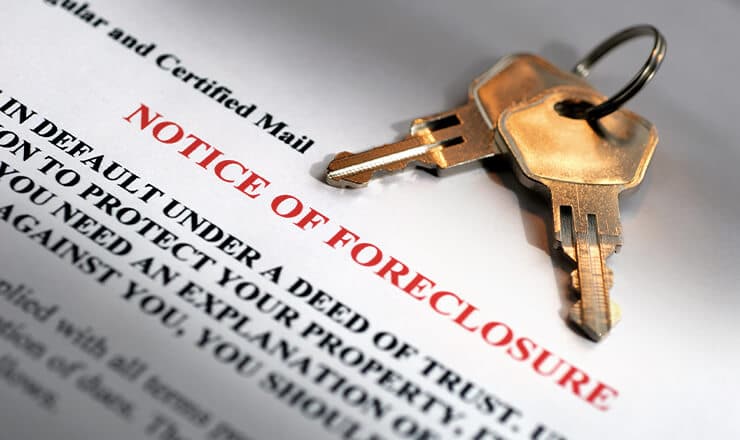Foreclosure happens when you fail to make mortgage payments, and you default on the loan, or you violate the terms of the agreement and lose ownership of your house. It’s important that you know what happens if you do nothing and foreclosure becomes unavoidable.
Contrary to what most homeowners think, walking away is never the best option, even if your property is valued lower than what you owe. The consequences of foreclosure are devastating and long lasting.
Consequences of Foreclosure
Foreclosure is a time-consuming and stressful, and sometimes even expensive, process. If you fear it is impending, talk with your lender about other options, like a temporary forbearance agreement.
The truth is, the bank does not want to foreclose on your property because it’s a long, difficult process for them too, and costs them money. But between the parties, you’ll take the biggest hit.
1. Damage to Your Credit Score
If you do nothing to stop foreclosure, your credit score will drastically drop. Good credit scores drop by 100 points or more, while excellent scores reduce by as much as 160 points. So the higher your score, the more impact foreclosure will have on it.
It can take three to seven years of on-time payments to fully recover your score.
A bad credit score leads to expensive interest rates and limited credit, making your financial recovery difficult.
2. May Owe a Deficiency Balance
If you fail to pay off what you owe during the foreclosure period, the property goes to auction. It’s rare that a property sells for more than the amount owed, but if it does, there’s no deficiency. If it sells for less, you’re responsible to pay the remaining debt.
Deficiency Judgements vary by state law.
3. Tax Implications
Any time a debt is forgiven, the IRS considers it income and taxable. If the debt (aka what you owe on your loan) is canceled or forgiven, it is reported to the IRS on a Form 1099-C, Cancellation of Debt. The amount must be reported with your income taxes.
4. Forfeit getting a Fannie Mae mortgage for at least 7 years
Fannie Mae and Freddie Mac Agency Mortgage Guidelines demand a waiting period of 5 to 7 years (from the date of foreclosure) before you can qualify for a conventional loan. As a result, it will be difficult for you to borrow money to purchase another house.
Extenuating circumstances, like job loss, illness, or divorce, may alter the waiting period.
5. Eviction
Once the bank seizes the property, it’s no longer yours. You’ll be evicted and lose any equity you may have established.
6. Problems Finding a New Home or Renting
You’ll have to find a new place to live after you’re evicted. Since there’ll be a waiting period before you can get another loan, renting may be your only option.
Landlords look at your credit score to determine your level of responsibility. A foreclosure in your credit report and a consequent low score will make landlords wary. And even if a landlord is willing to accommodate you, it may be in the form of an inflated security deposit.
Facing Foreclosure? Sell Fast to Avoid the Consequences
If you cannot pay what you owe, rather than go through with foreclosure, you can short sale to a real estate investor. Most investors make a cash offer on a property “as-is” – that means no repairs, renovations, or cleaning. They forgo lengthy mortgage approvals, traditional sale warranties, appraisals, and inspections, and can often close in 30 days or less.
You and your lender can negotiate the short sale terms, sell fast, and you can walk away without a hit to your credit score or owing the bank more money.






